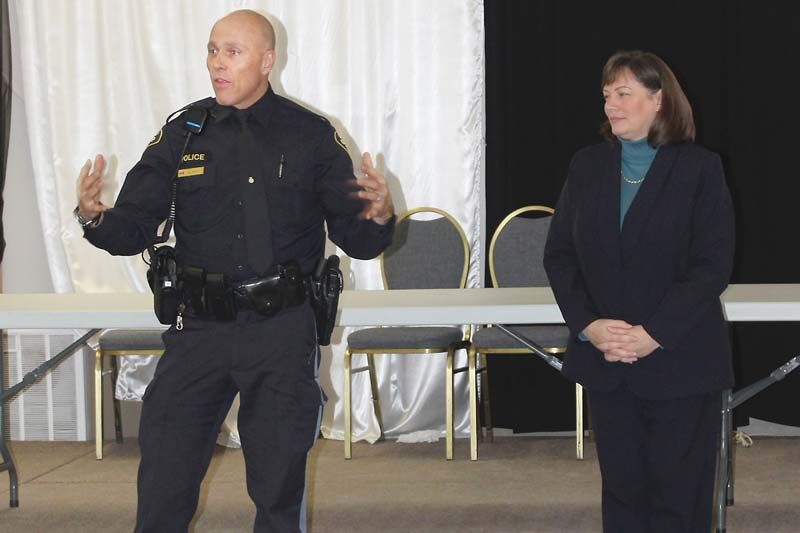Craig Bakay | Dec 04, 2019
The purpose of a will is to allow your assets to be handled the way you wish, lawyer Michelle Foxton told the Seniors And Law Enforcement Together (SALT) gathering last week at Golden Links Hall in Harrowsmith.
“If you die intestate (ie no will), it’s not the end of the road, but . . .” she said.
Foxton was the featured speaker at the last SALT presentation for this year. The popular series will resume in January with sessions on frauds and scams.
“The reason I’m here today is to tell you the benefits of having a will and the downsides of not having a will,” she said. “Lawyers, because they’ve seen so many scenarios can properly advise you but they need your input so that they know where your assets are.”
While you can write your own will from a kit or website, it probably won’t do everything you might want it to.
“Sometimes, you want to keep assets out of a will to avoid probate,” she said. “Probate is contesting a will in court.
“Financial institutions want to know that the executor is the executor and that there isn’t another will floating around somewhere.”
And, she said, if one aspect of a will triggers probate, probate tax will be applied to the entire will.
She said the executor(s) of your will is entitled to compensation but some will opt to only take expenses because said compensation is subject to income tax.
In the case of joint ownership of property or bank accounts, the right of survivorship takes effect, she said.
“(But) I really caution people from adding people (such as children) as joint owners because as survivors, it goes to them, shutting out other kids for example.
“And if you want to do anything with the property, you need permission of the joint owner.”
And, there are special provisions for passing on farm properties so you have to talk to a tax preparer before you go to a lawyer for a will, she said.
And, just because you have a small estate, doesn’t mean you don’t need a will.
“Small estates are often the hardest to deal with because there usually isn’t enough money to hire professionals to deal with certain aspects,” she said.
Wills deal with your assets after you die. Powers of Attorney govern your affairs while you’re still alive.
“Powers of Attorney can allow you to deal with bank accounts without adding joint ownership,” she said.
There are actually two types of Power of Attorney — for assets and for care.
Foxton encourages clients to discuss these with your lawyer and your doctor.
“These are tough decisions but you’d be surprised at how many matters can be resolved,” she said.
More Stories
- Latest CUPW Job Action Stops Postal Delivery Of The Frontenac News Forcing Alternate Plans
- Opponents of Barbers Lake Gravel Pit Pack Ag Hall in McDonalds Corners
- Bobsleigh Olympian Jay Dearborn At Mikes Pizza In Sydenham
- The Loins Club Of and O'Lakes Roar
- North Frontenac Back Roads Studio Tour - September 27 and 28
- Sunday Market Vendors Give Back
- George Street Work As Town Hall Renovation Nears Completion
- One Way Street Plan Hits A Dead End - Central Frontenac Council, September 9
- Global Gardening
- No Winner Yet in Catch The Ace But Fundraising Target Met

